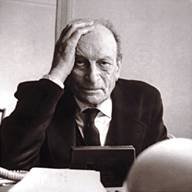IN MEMORIAM, IN SOLIDARITY : AARON SWARTZ's GUERRILLA OPEN ACCESS MANIFESTO
"With enough of us, around the world, we’ll not just send a strong message opposing the privatization of knowledge — we’ll make it a thing of the past. Will you join us?" - Aaron Swartz; Eremo, Italy, 2008 Here at Exit Strata,
AWESOME CREATORS :: 100,000 POETS FOR CHANGE : AN OPEN LETTER from poet Taha Abdel Moniem (Cairo and Assiut, Egypt)
FROM EGYPTIAN POETS TO THE POETS OF THE WORLD || || Des poètes Égyptiens … aux poètes du monde من شعراء مصر إلى شعراء العالم نحن شعراء مصر، نرسل- من قلب القاهرة- صوتنا إلى كافة شعراء وشعوب العالم، دفاعًا عن حرية الإبداع، في
AWESOME CREATORS :: 100,000 POETS FOR CHANGE :: TRINIDAD AND TOBAGO
"It's a new day and a new way
AWESOME CREATORS :: 100,000 POETS FOR CHANGE :: GREECE EDITION, with ORGANIZER NANA NESTOROS
Last week, we inaugurated our weekly AWESOME CREATOR series in celebratory collaboration with 100,000 Poets for Change, with a special Editorial "Rendering The Old Model Obsolete," in which we sought to introduce the community not only to this terrific organization
SPECIAL EDITORIAL / AWESOME CREATORS EDITION:: "RENDERING THE OLD MODEL OBSOLETE" : 100,000 POETS FOR CHANGE
"history is a living weapon in yr hand & you have imagined it, it is thus that you "find out for yourself" history is the dream of what can be, it is the relation between things in a continuum of imagination what you find out for
POETRY MONTH 30/30/30: Inspiration, Community, Tradition: DAY 13:: Lancelot Runge on Philippe Soupault
 An interest in surrealist game play and collaboration brought me to Philippe Soupault years ago. My current manuscript deals with the doubling or mirroring of the self, as well as reconciling mythology and contemporary pissnshit vernacular (as a shamelessly romantic)- all of which I find in Soupault. Translations lead me to where I can mishear dialogue and rewrite my favorite songs, call them my own.
Philippe Soupault est un poète français, né à Chaville le 2 août 1897, décédé à Paris le 12 mars 1990. Avec ses amis André Breton et Louis Aragon il participe à l'aventure Dada, qu'il considère comme une « table rase nécessaire », pour ensuite se tourner vers le surréalisme, dont il est un des principaux fondateurs avec André Breton. Avec ce dernier, ils ont en effet écrit le recueil de poésie Les Champs magnétiques en 1919, selon le principe novateur de l'écriture automatique. Ce recueil de poésie peut être considéré comme une des premières oeuvres surréalistes, alors que le mouvement ne se lancera vraiment qu'en 1924 avec le premier Manifeste du surréalisme d'André Breton.
An interest in surrealist game play and collaboration brought me to Philippe Soupault years ago. My current manuscript deals with the doubling or mirroring of the self, as well as reconciling mythology and contemporary pissnshit vernacular (as a shamelessly romantic)- all of which I find in Soupault. Translations lead me to where I can mishear dialogue and rewrite my favorite songs, call them my own.
Philippe Soupault est un poète français, né à Chaville le 2 août 1897, décédé à Paris le 12 mars 1990. Avec ses amis André Breton et Louis Aragon il participe à l'aventure Dada, qu'il considère comme une « table rase nécessaire », pour ensuite se tourner vers le surréalisme, dont il est un des principaux fondateurs avec André Breton. Avec ce dernier, ils ont en effet écrit le recueil de poésie Les Champs magnétiques en 1919, selon le principe novateur de l'écriture automatique. Ce recueil de poésie peut être considéré comme une des premières oeuvres surréalistes, alors que le mouvement ne se lancera vraiment qu'en 1924 avec le premier Manifeste du surréalisme d'André Breton.



